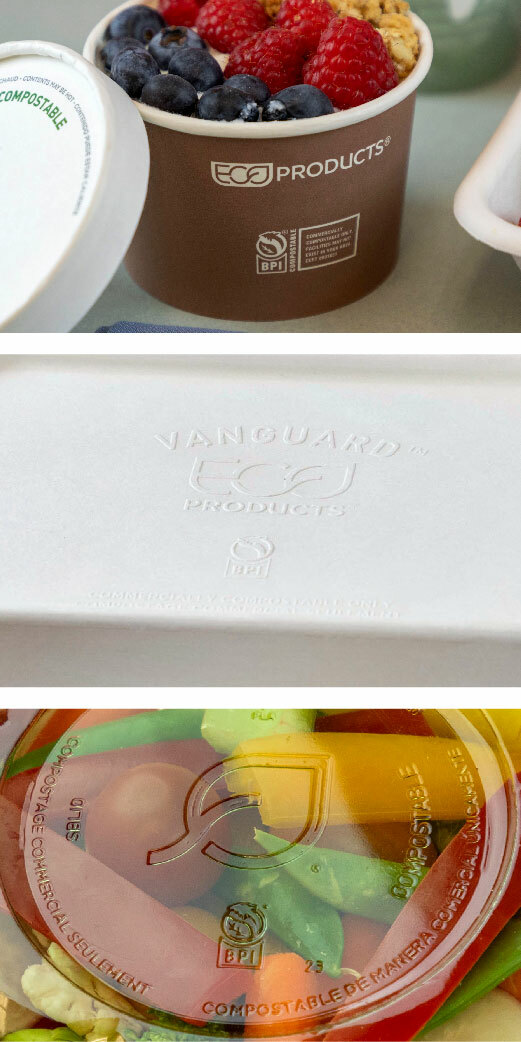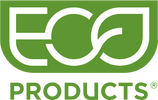The Critical Importance of BPI's Labeling Rules
Posted by Eco-Products on Apr 25th 2024

In late 2020, the Biodegradable Products Institute (BPI) put in motion a multi-year, phased approach to enforcing its long-standing requirement that the BPI Certification Mark be used on all of the products it certifies. Why? Mainly because it was becoming increasingly clear that contamination from non-compostable products was (and still is) the biggest challenge composters face, and a critical impediment to the growth of composting infrastructure designed to accept food scraps and packaging.
A timeline for enforcement was established and signed by all companies certifying products with BPI, with deadlines for compliant artwork on printed items at the end of 2021, and non-printed items at the end of 2023. Printed products, like hot cups and cold cups, are easier to make artwork changes to because the labeling does not happen in a mold or tool.
That’s why companies were given three years to plan and budget for the tool changes required to make changes to non-printed items. Of the 80 new products we launched last year, 48 are made with paper, fiber, or wood. In fact, just over half of our stock products are made from those materials. And a lot of our recent development work has been focused on items that you wouldn’t typically associate with fiber – categories like lids and cutlery to name a few – that are critical for operators needing a full bundle of fiber-based items.
We applaud BPI for taking action and using its unique position in the value chain to make sure that composters, end-users, and others have the information they need
on the item itself to determine whether or not the product is BPI-Certified.
On-item labeling is not going to solve the contamination problem on its own, but without it we have no chance. Those who suggest otherwise are more than likely using BPI and the complexity of the contamination issue as scapegoats for their own operational challenges. To learn more about compostability certifications, visit our certifications page
here.
Put Waste to Work.

